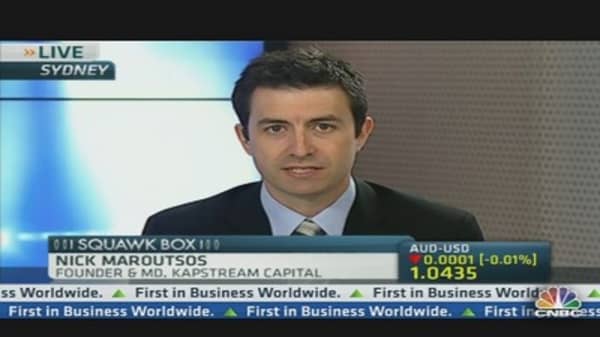Demand for short duration bonds is thriving as the global economic recovery gathers pace and the risk of rising interest rates and a pick-up in inflation becomes more real, fund managers say.
While interest rates in major developed economies remain at record lows, signs that an economic recovery is starting to take hold has helped boost risk appetite and sparked talk that an era of ultra-easy monetary policy may be drawing to an end.
(Read More: Investors Face Big Risk Over Interest Rates: Blankfein)
As a result, global bond investors are now switching out of long-dated bonds and taking positions in debt with a shorter duration in a bid to protect their portfolios from any surprise rise in interest rates.
"Duration" measures the overall interest rate sensitivity of a bond portfolio, so by buying more short duration bonds than longer duration ones, for example, a bond fund manager can reduce that number.
Anita Yadav, managing director of financial services company SJS Group, said demand for short duration bonds has spiked recently.
"There is certainly increasing appetite for shorter duration paper as fixed income investors adjust their portfolios to accommodate the risk of higher inflation and the possibility of rising rates," she said. "The hedge funds and fast money guys are buying more short-dated bonds in order to reduce the risk of rising treasurys yields. However real money is still comfortable holding longer dated paper to benefit from higher yields offered by the longer duration risk."
Franklin Templeton's fixed income team has been shortening duration within its Templeton Global Bond fund and Total Return fund in a bid to protect against potential interest rate rises for some time now.
"Our biggest worry is interest rates rising faster than expected. Generally most investors are not expecting the Fed to hike rates for another 18 to 24 months, but if rates go up faster than expected we could get caught out," said William Tan, head of fund distribution sales for South East Asia at Franklin Templeton.
(Read More: Interest Rates Will Spike This Year: Soros)
"The primary reason shorter-maturity securities tend to exhibit less volatility is that they are less exposed to the economic cycles and uncertainty surrounding the economic environment, which tend to span longer time frames," added Christopher Molumphy, executive vice president and chief investment officer at Franklin Templeton Fixed Income Group.
"Consequently, shorter-duration securities can be used to capitalize on rising interest rates more quickly than longer-duration securities, as their return of principal at maturity can be reinvested quicker at the new, higher interest rate than securities that have not yet matured," he said.




